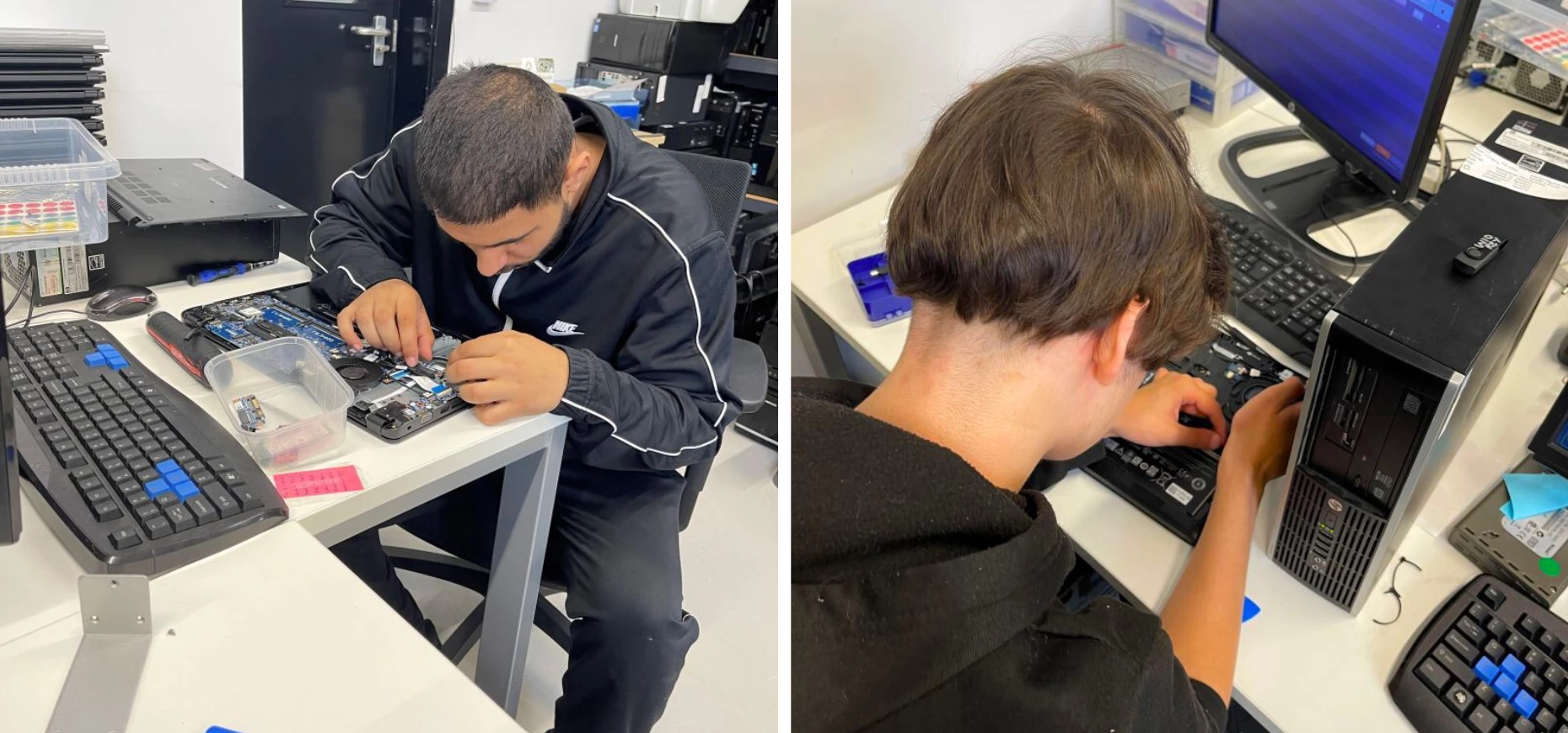
New six-figure project aims to increase digital inclusion across the Tees Valley
A new digital inclusion project has launched after a recent successful award by the Tees Valley Mayor and Combined Authority to Teesside University and local partners.
This project has received £499,962 from the UK Government through the UK Shared Prosperity Fund and is being delivered on behalf of the Tees Valley Mayor and Combined Authority (TVCA).
The digital inclusion project, named DIG-IT (Digital Inclusion – Growing in IT), aims to increase digital inclusion across the Tees Valley, working with delivery partners The Hope Foundation and Good Things Foundation to develop and test the feasibility of solutions and services which will enable those most excluded from digital access to fully participate in today’s digital society.
This project will explore solutions to three main barriers to digital inclusion with activities that aim to address skills gaps, helping to build confidence and security through digital skills provision.
These barriers include the lack of equipment, particularly during a period of high inflation and the cost-of-living crisis, as well as the lack of connectivity, skills and confidence due to low affordability and scepticism of using technology.
The planned ‘digital skills for living’ pilot programme will offer non-accredited, functional digital skills provision to those that are economically inactive in the Tees Valley and support individuals who are issued with devices, along with other targeted service users to develop the digital skills needed to connect with and have access to education, jobs and more.
Teesside University will provide an academic-led evaluation of the programme’s impact and sustainability, offering recommendations for future digital inclusion work which, in turn, will support the testing and modelling of pilot activities and enable a data-based approach to future support and investment.
Activities such as working with Tees Valley digital social enterprise furbdit, which refurbishes unwanted computer equipment, is also a part of the DIG-IT project plans, as the funding provided will enable the development of a long term, embedded and sustainable solution to digital device poverty across the Tees Valley.
Lynsey Robinson, director of DigitalCity & Economic Development, commented: “This project represents an exciting opportunity for Tees Valley to come together and test and trial new ways of doing things and developing new ideas.
“Teesside University is thrilled to be leading this project and we are looking forward to collaborating with partners over the nine-month period to find new ways to tackle digital poverty.”
By Matthew Neville – Senior Correspondent, Bdaily
- Add me on LinkedIn and Twitter to keep up to date
- And follow Bdaily on Facebook, Twitter and LinkedIn
- Submit press releases to editor@bdaily.co.uk for consideration.
Looking to promote your product/service to SME businesses in your region? Find out how Bdaily can help →
Enjoy the read? Get Bdaily delivered.
Sign up to receive our daily bulletin, sent to your inbox, for free.




 test article 123456789
test article 123456789
 hmcmh89cg45mh98-cg45hm89-
hmcmh89cg45mh98-cg45hm89-
 test456456456456456456
test456456456456456456
 test123123123123123123
test123123123123123123
 test xxxdiosphfjpodskhfiuodsh
test xxxdiosphfjpodskhfiuodsh
 Savour the flavour: North Tyneside Restaurant Week returns for 2024
Savour the flavour: North Tyneside Restaurant Week returns for 2024
 Six steps to finding the right buyer for your business
Six steps to finding the right buyer for your business
 Stephen signs off on a special night
Stephen signs off on a special night
 Life’s a Peachaus: Gillian Ridley Whittle
Life’s a Peachaus: Gillian Ridley Whittle
 Making a splash: Phil Groom
Making a splash: Phil Groom
 Making workplace wellbeing a priority
Making workplace wellbeing a priority
 A record of delivery, a promise of more: Ben Houchen
A record of delivery, a promise of more: Ben Houchen